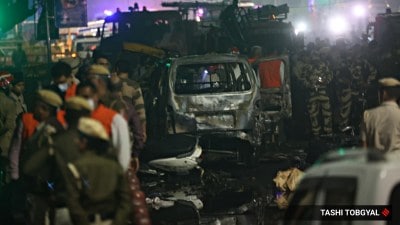After success in Nepal, CPM sets sights on Lanka
Karat, Yechury in dialogue with Lanka government; in Nepal, party had reached out to Maoist rebels

After claiming success in bringing Nepal on the road to democracy, the Communist Party of India (Marxist) is now playing trouble-shooter in Sri Lanka and is advocating that the Rajapakse government should revive the stalled dialogue with the Liberation Tigers of Tamil Eelam (LTTE).
At the forefront are general secretary Prakash Karat and politburo member Sitaram Yechury.
Karat met Sri Lankan Foreign Minister Mangala Sawaraweera in New Delhi this month and suggested that a dialogue with the Tigers was essential to the island’s peace process.
Karat told Sawaraweera that a peaceful solution was possible through a proper devolution of powers in a federal set-up within the framework of a unified Sri Lanka. He has also met the Sri Lankan President.
Yechury, who went to Sri Lanka in 2004 after the formation of the UPA government, says his party is only facilitating what the Indian Government is doing.
‘‘What we are saying on Sri Lanka is also the Government’s stated position,’’ he said. ‘‘But while exercising restraint in dealing with the Lankans, we must be ready to help them in case there’s a request.’’
So far the CPI(M) leaders have spoken only with the Sri Lankan Government. They haven’t reached out to the Tigers, unlike in Nepal, where they have been in touch with the Maoist rebels.
The CPI(M)’s actions in regional politics ties in with its anti-US world view: it wants to see that regimes here don’t become vulnerable to US pressures and to consolidate Left forces against the US.
On both counts the party thinks Sri Lanka and Nepal offer fertile ground. In Sri Lanka, it feels the Norwegians are acting at the behest of the US. And in Nepal, according to Yechury, ‘‘we had a role in the unification of the labour movement.’’
The party is also looking at the entire neighbourhood. While it says its role is not in conflict with the Government’s, it is goading the Government in the direction it favours.
For example, in the case of Nepal, the Government had initially supported King Gyanendra, only to change its stance later. What the party says, however, is that people’s movement in Nepal enabled that choice.
‘‘The greater the internal discord in the neighbourhood, the greater the worry for us,’’ said Yechury. ‘‘Problems in Bangladesh could lead to an exodus here, as it would be in the case of Nepal. Problems in Sri Lanka will impact Tamil Nadu. But we have to respect the independence and sovereignty of these countries.’’





- 01
- 02
- 03
- 04
- 05


























